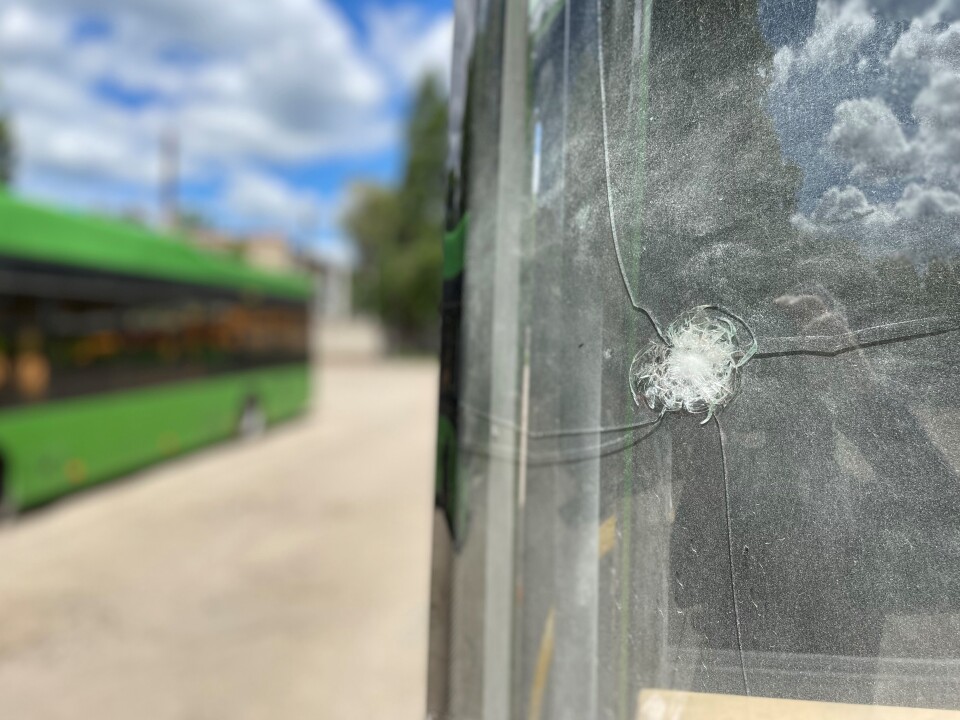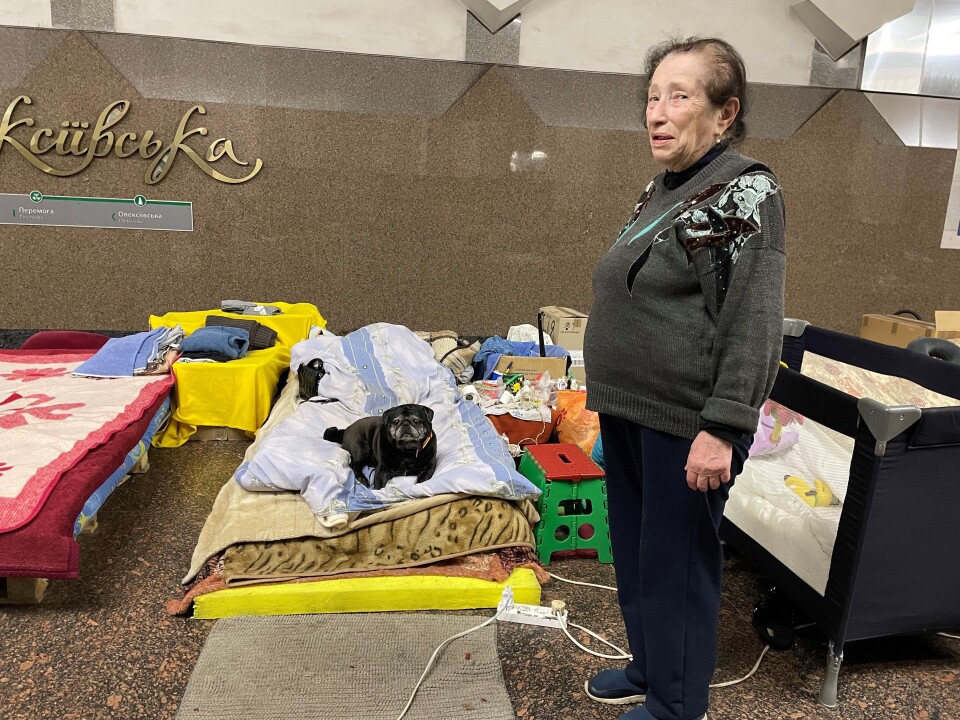With our free press under threat and federal funding for public media gone, your support matters more than ever. Help keep the LAist newsroom strong, become a monthly member or increase your support today.
Kharkiv's mayor says it's time to move out of the city's subway stations

KHARKIV, Ukraine — The mayor of Kharkiv, Ukraine is asking residents to move out of the city's underground subway stations, where thousands of people have been taking shelter since the start of Russia's invasion in February.
Mayor Ihor Terekhov said Thursday that the city is now safe enough for residents to leave the metro stations, and that hostel rooms will be offered to anyone who needs one.
Kharkiv, Ukraine's second-largest city, came under heavy shelling early in the war as Russian forces attempted to encircle it. But Ukrainian forces have been gaining ground around Kharkiv in recent days. As of Monday they had pushed Russian forces back to within two miles of the Russian border, according to a senior U.S. defense official.

Some shells continue to hit the edges of the city, but the mayor says the situation is far better than it was even a couple of weeks ago. Far more people are out on the streets, and buses and trams are now running again for the first time since the invasion.
Due to the rapidly improving security situation in the city, Terekhov declared that he is restarting four light rail lines, eight trolley buses and 25 bus routes.
Many of the buses and trams were damaged by Russian shelling, and because of a shortage of replacement glass, some of the vehicles are out on the streets with plywood covering their windows.
Beznikov Valeriy, waiting at a bus stop in the center of the city, says the return of the buses is a beautiful sight. After weeks of getting pounded by Russian attacks, he says ordinary life is now able to resume in Kharkiv.
"It's much much safer," he said through a translator. "It actually feels good here now."

But the mood in the heavily bombarded city isn't entirely celebratory, and Kharkiv's metro stations have remained packed with people sleeping on the platforms and inside rail cars.
Some lost their homes to shelling. Others are too afraid to go home, either out of disbelief that attacks on Kharkiv finally have slowed or concern that they could pick back up again.
But as part of restarting life, the mayor says, it's time for the subway to resume normal operations too.
Copyright 2022 NPR. To see more, visit https://www.npr.org. 9(MDA1OTI3MjQ5MDEyODUwMTE2MzM1YzNmZA004))









